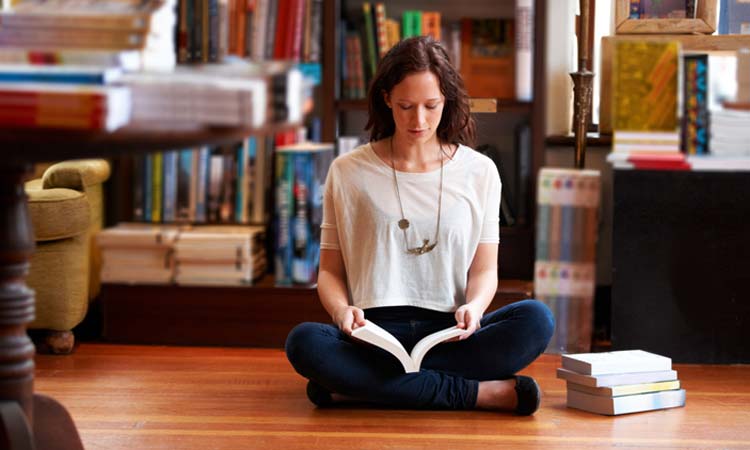Feast your eyes and your rewire your mind
If you’re not a fan of romance novels or want to sink your teeth into something a bit meatier than Nicolas Sparks, there are plenty of books out there that will give you something new to learn. Rather than throwing a bunch of titles at you, we’re categorizing ideas into types of books with examples of each. Explore the ones that interest you, and come out of the summer a bit more knowledgeable than at the beginning. And who knows, maybe you’ll discover a new hobby or interest along the way.
1. Scientific books
Don’t worry – we’re not talking about your high school biology textbook here. Sink your teeth into books on commerce and society, plant botany or metaphysics. Scientific books teach us how to investigate our intuition and validate it with evidence. They help us understand the physical world better and how evolution is happening. Some suggestions include: Of the Origin of Species, by Charles Darwin, The Brief History of Time, by Stephen Hawking, Cosmos, by Carl Sagan or A Short History of Nearly Everything, by Bill Bryson.
2. Philosophy
Yogis, rejoice! Books such as The Bhagavad Gita, the Koran and the Bible are spiritual and religious texts that may hold positive or negative connotations, yet have similar threads and themes throughout, to help you better understand how we think individually and how the world thinks around us. Dive into your analytical mind and your introspective self with more guidance. Books like these are especially important in a time when we are glued to our devices. Instead, these books give us ancient practices that can be applied to our lives today.
3. Poetry
Whether you’re an aspiring poet, a romantic or neither, poetry has a way that speaks to our hearts – not our minds – as most informational books do. You’ll learn rhyming schemes, rhythms and more that can also be very beneficial for musicians. Whether you want to start with the classic Shakespearean literature or something more modern such as Mary Oliver, poetry can tug at the heartstrings like no other reading can.
For a classic list of popular poems and books, check out The Raven, by Edgar Allan Poe, The Road Not Taken, by Robert Frost, Shakespeare’s Sonnets, by William Shakespeare and O Captain! My Captain!, by Walt Whitman – that is, if you didn’t already read those in Literature class. Then again, with a more mature mind, re-reading some of your high school and college assignments can take on a whole new meaning.
4. History
Some people love history, and some people could do without it. Whatever category you fall into, reading history as an adult can be much more entertaining than our high school textbooks. Autobiographies and biographies of presidents such as Killing Kennedy, The Bush Tragedy or Lincoln and His Generals will inform you of another time. Especially with our ever-changing political climate, it can be a wise idea to study the history of our country or other countries to see any patterns that are repeating themselves.
5. The Classics
As mentioned earlier, sometimes revisiting books we read when we were teenagers holds a whole new meaning. And of course, there are always plenty of books that we must read before we die. Pick one or two for your book rotation this summer. Some inspiration: Pride and Prejudice, by Jane Austen, Little Women, by Louisa May Alcott, Lord of the Flies, by William Golding, Of Mice and Men, by John Steinbeck, The Catcher in the Rye, by JD Salinger, The Little Prince, by Antoine de Saint-Exupery and 1984, by George Orwell.








